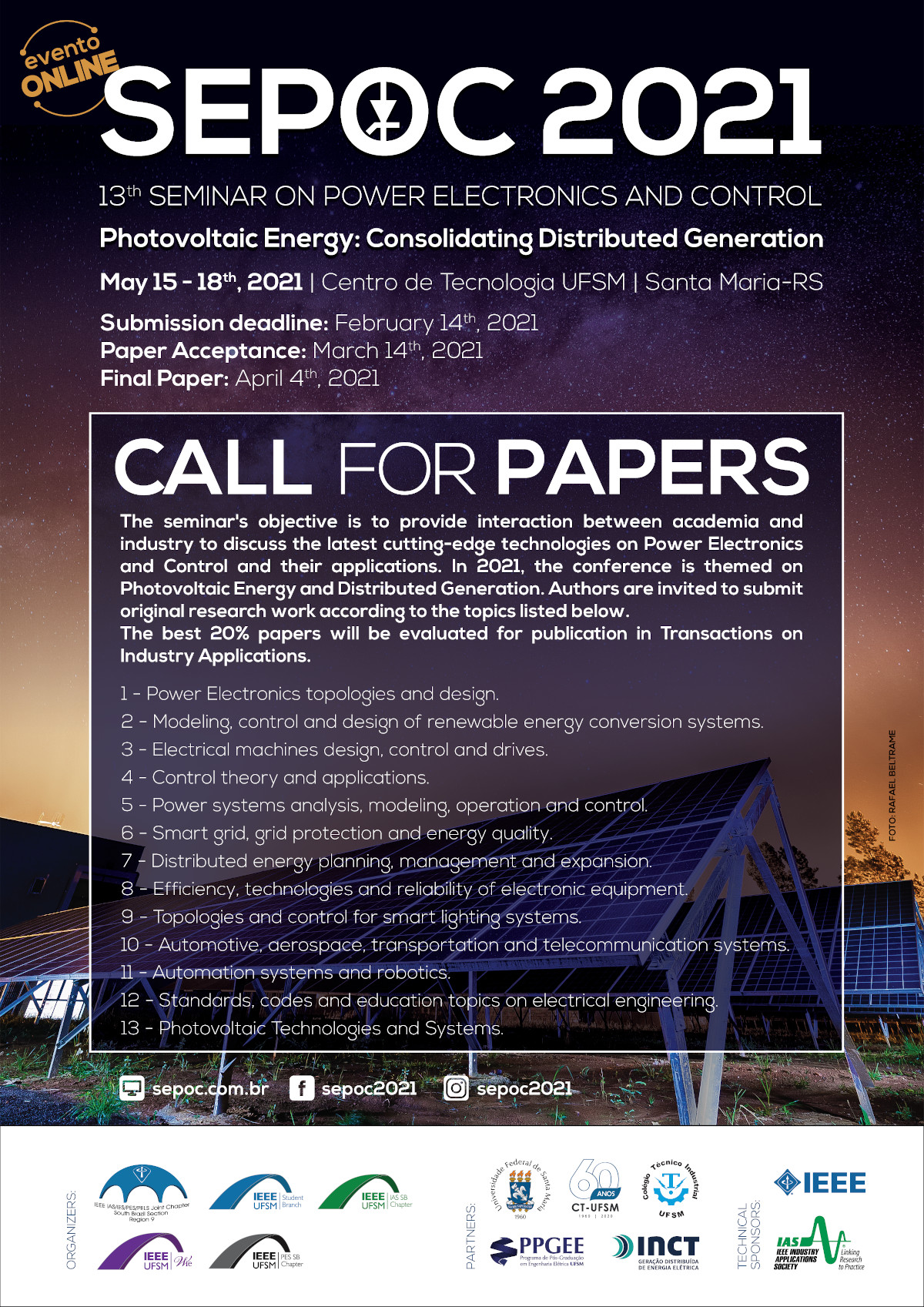1) Photovoltaic Technologies and Systems
This special session includes: PV cell materials and modules; PV modeling, analyses and simulation; power conditioning; balance-of-systems components; monitoring; and PV system standards.
2) CDIO and Engineering Education
This special session includes (but is not limited to): Adoption and Application of the CDIO Method: Conceive, Design, Implement, Operate; Attracting and Supporting Students; Curriculum Evolution and Course Development; Education for Sustainability, Internationalization, and The Industry in the Post-Pandemics; Education Methods During Pandemic; Engineering Projects & Introduction to Engineering; Engineering Specific Methods for Teaching/Learning and Assessment; Evolution in Processes, Leadership and Faculty Development; Learning Environments-Online and On-site; Meeting Personal and Interpersonal Expectations from the Labor Market: Soft-Skills Development and Assesment; New Ideas in Engineering Education, Learning Methods, and Integration of Courses, Extracurricular Activities and Outreach Into Curriculum.
3) Real time simulation
This special session includes, but is not limited to: real-time simulation of power electronics converters, microgrids and power systems; controller hardware-in-the-loop (CHIL); power hardware-in-the-loop (PHIL); test automation with CHIL and/or PHIL; HIL applications to renewable energies and electric systems.
4) Computer Aided Engineering (CAE)
This special session includes: Stress analysis on components and assemblies using Finite Element Analysis (FEA); Thermal and fluid flow analysis Computational fluid dynamics (CFD); Multiphysics simulations; Electromagnetics problem solutions using finite element method (FEM); Optimization of the product or process.
